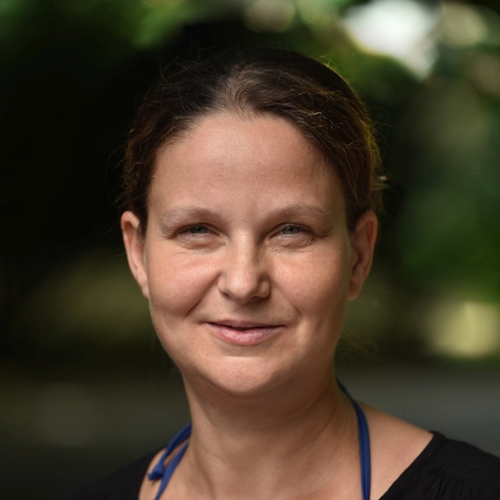THESys Project
Rethinking Agroecology Across Europe
ecoFABULAnds is a pioneering research project led by Ina Säumel, Mina Karamesouti, and Klara Muranyi within Ina’s research group “Multifunctional Landscapes” at IRI THESys. This project addresses the urgent need for transformative change in European agricultural landscapes. Supported by the German Federal Ministry of Education and Research (BMBF) from April 2025 to March 2028, this initiative is part of a broader European effort to create resilient, biodiverse, and sustainable food systems.
Tackling Landscape Challenges Through Living Labs
European landscapes face mounting pressures from environmental degradation, biodiversity loss, and unsustainable agricultural practices. ecoFABULAnds responds by exploring processes in and around five Living Labs in diverse regions: the rolling countryside of South Ireland, the urban expanse of Berlin-Brandenburg, the rugged terrain of South Tyrol, the agricultural heartland of South Hungary, and the sun-drenched shores of Cyprus. These Living Labs serve as real-world testing grounds for innovative agroecological practices and community-driven transformation.
ecoFABULAnds’ Innovative Approach
The project adopts a multi-actor, community-based strategy to advance food production, distribution, and consumption. Circular economy is central to ecoFABULAnds, which seeks to minimize waste and maximize resource efficiency. By fostering dialogue across sectors and empowering local stakeholders, the project aims to:
- Identify and implement the most suitable agroecological practices for each landscape.
- Redesign agroecosystems to enhance biodiversity and resilience.
- Explore pathways for mainstreaming successful solutions into broader agri-food systems and governance structures.
Empowering Change Through Collaboration
ecoFABULAnds places strong emphasis on cross-sectoral and multi-stakeholder collaboration. By integrating bottom-up initiatives with existing and innovative governance frameworks, the project seeks to drive systemic change and accelerate the agroecological transition at the landscape level. This approach ensures that solutions are context-specific, scalable, and sustainable over the long term.
Contributing to European Agroecology
As one of 19 projects selected from 89 initial proposals in a highly competitive European call, ecoFABULAnds stands out for its ambitious vision and collaborative methodology. The project’s outcomes will provide valuable insights and practical frameworks for policymakers, practitioners, and communities seeking to foster healthy, productive, and biodiverse landscapes across Europe.
For more details, visit the official project page or the Agroecology Partnership portal.
Output
Gerner, I.R., Zerbe, St., Säumel, I. (2025) Voices around the South Tyrolean Herbal Pharmacy – Exploring the stakeholder landscape and perspectives on medicinal plants as culturally salient species. Journal of Ethnobiology (accepted).
Project Partners
- Fanni Székely-Trendl – University of Pécs (PTE) – Faculty of Humanities and Social Sciences (PTE BTK), Hungary
- Stefan Robert Zerbe – Free University of Bozen-Bolzano (UNIBZ), Italy
- Marinos Stylianou – Open University of Cyprus (OUC), Cyprus
- Toni Karge – Berlin Senate Department for Urban Mobility, Transport, Climate Action and the Environment (SenUVK), Germany
- Imelda Casey – South East Technological University (SETU), Ireland
- Michael O’Grady – University College Dublin (UCD), Ireland



